I Confess (1953)
Directed by: Alfred Hitchcock
Written by: George Tabori, Paul Anthelme, William Archibald
Starring: Anne Baxter, Karl Malden, Montgomery Clift, O.E. Hasse
HCF REWIND NO. 224: I CONFESS [US 1953]
RUNNING TIME: 95 min
AVAILABLE ON DVD
THE HITCHCOCK CAMEO: Strolling across the top of a long flight of steps in Quebec, in a long-shot silhouette filmed at a distance, immediately after the opening credits
REVIEWED BY: Dr Lenera, Official HCF Critic
Father Michael Logan is a devout Catholic priest in St. Marie’s Church in Quebec City. He employs German immigrants Otto Keller and his wife Alma as caretaker and housekeeper. One evening, Otto confesses to Father Logan in the church’s confessional that he accidentally killed a shady lawyer named Villette, for whom he worked part-time as a gardener, while trying to rob him. Otto also tells his wife about his deed and assures her that the priest will not say anything because he is forbidden from revealing information acquired through confessions. Because someone saw a priest leave Michael’s house, and Michael refuses to provide any information, the police begin to suspect him….
I suppose I’ve always had an issue with I Confess, and probably many others too considering it’s never been one of Hitchcock’s more popular films. I think you have to be a Roman Catholic to find the premise of a priest being confessed to by a murderer, and never telling anyone despite his situation getting worse and worse, believable. The rest of us probably can’t fathom why he won’t tell the police or at least someone to help himself. Towards the end I almost feel like shouting at the screen! This is really a great shame, because I Confess is another strong effort from Hitchcock, for much of the time more of a drama than a thriller, but riveting viewing nonetheless. There’s no big set pieces, but it’s still very suspenseful in that it really keeps you wondering how things will turn out. It’s quite a downbeat, austere work, and almost devoid of humour [I say almost – even the most serious Hitchcock film will have the odd chuckle], and perhaps suffers from coming after the stunning Strangers On A Train, but it’s still most definitely worth your time, and may actually be one of Hitchcock’s more personal films.
Hitchcock had actually been interested in filming Paul Anthelme’s play no deux consciences [Our Two Consciences] since 1934, primarily because the subject was very real to his Catholic upbringing. The rights were sold to Hitchcock’s company Transatlantic Pictures, then went to Warner Bros. when the former dissolved. He and Alma wrote a treatment in 1948, and William Ross, Leslie Storm and Paul Vincent all wrote successive treatments, but Hitchcock was busy elsewhere at the time. Author Geroge Tabori wrote a script, but Warners wanted significant changes to please the censors, the play having Michael father an illegitimate child and be killed at the end. Finally Hitchcock and Alma wrote another script, which playwright William Archibald adapted. Cary Grant turned down the lead role, while Swedish actress Anita Bjork was intended to be the female lead until she turned up in Hollywood unmarried but with her lover and their baby and was put back on the first plane home. Hitchcock hated working with method actor Montgomery Clift, who wouldn’t go anywhere and do anything without his acting coach’s approval, blew take after take to ‘find’ his character, and was drunk much of the time trying to deal with his homosexuality. The exasperated Hitchcock took his fustration out on Anne Baxter, repeatedly having her deluged with water during a storm scene. Shot mostly on location in Quebec with only some interior scenes filmed at the studio, I Confess was a critical and commercial disappointment except, perhaps unsurprisingly, in France.
Opening as it does with shots of various Quebec landmarks, I Confess is , like Vertigo, a film where the setting plays an important part in not just the plot of its story but its mood. There’s both a grandeur and a coldness to the architecture which immediately sets the tone, and Hitchcock keeps cutting to bits of it throughout ghe film, often looking up. The superb film noir-ish lensing of Robert Burks really enhances the moody first scene of Otto Keller fleeing the scene of his crime and making his way to the church where he works to confess to Father Michael Logan. Thereafter the story mostly progresses with developments via dialogue, but it remains absorbing as the noose seems to tighten around Michael. It turns out that the person murdered was blackmailing Michael over a girl he was once in love with, so in a sense Otto killed for another, and then there’s the usual detective, Inspector Larrue, waiting for Michael to trip up. The story does eventually resolve itself in fairly predictable fashion, which is perhaps disappointing considering how complex the characters and their relationships are. There’s some fairly good courtroom stuff though not as interestingly shot as the ones in The Paradine Case, then the usual Hitchcock chase through a Canadian chateaux. The abrupt ending works very well, because certainly not everything has been resolved.
Guilt, its transfer and its confession, was always a favourite Hitchcock theme, Under Capricorn being perhaps its fullest exploration up to I Confess, but here he really delves into it, giving the film an almost anguished feel. In some respects, the main part of the story is less interesting than some of the sub-plots. The scenes between the German killer Otto, who may be a typical ‘foreign’ Hitchcock murderer in some respects but retains a vulnerability and an ambiguity [his motives aren’t always clear, but then he’s clearly going insane] and his wife have both a sensitivity and an edge to them at the same time, and it can’t be a coincidence that the wife’s name is changed to Alma. Indeed, it’s hard not to see Hitchcock himself when, at the end, Otto tells of his fear of the police and love for Alma. Then there’s the relationship between Michael and Ruth, the girl he once loved but after returning from war abandoned for the church. In the middle of the film, there is a beautiful, dreamy flashback sequence of their back story, beginning with a gorgeous shot of Ruth descending from some steps, all soft-focus and shimmering, which is stylistically at odds with the rest of the film but again shows Hitchcock the passionately romantic filmmaker. Its poignancy is aided immensely by Dmitri Tiomkin’s truly lovely theme song. The words are almost impossible to make out, but it’s a gorgeous piece and has some of the spiritual beauty of some the pieces Ennio Morricone wrote and were sung by Edda Dell ‘Orso.
Even for Hitchcock, there’s a great deal of visual symbolism, peaking when a statue of Jesus on the cross is shown to comment on Michael’s burden, it given an ironic touch because Michael is also bearing somebody else’s cross. Other techniques are more subtle though, like when Alma passes by Michael as she serves the priests their breakfast and the focus is on the back of Michael’s head which slightly changes position several times. He knows that she knows. Some scenes in this film could almost be a textbook example on how to stage a simple moment for the greatest effect, while most of the characters are fully rounded and seem real except perhaps Ruth’s husband whose unrequited love for seven years just seems foolish. Karl Malden even makes the typical cold, efficient detective character seem like a real person. The biggest flaw with I Confess is that the central premise just isn’t made believable enough, no matter how tortured Montgomery Clift looks, and it’s a major problem, despite overall this picture being a fine piece of filmmaking. A hell of a lot of effort was obviously spent to get everything right, all the way down to the extras, all of which behave realistically, while unusually there’s no back projection. One warms to Hitchcock’s constant use of it, but it’s also nice to have a film from him which doesn’t have it.
Blotto or not, Clift delivers a multi-layered performance, his face often speaking volumes without the use of words. O.H.Hasse makes a strong impression as the murderer you can’t help feeling sorry for even when he testifies against the man to whom he confessed his crime, and Dolly Haas brings extreme emotional sensitivity to the role of his wife. Anne Baxter is merely okay though as Ruth. Tiomkin’s score is often allowed to play very loudly and sometimes the dramatic flourishes seem over the top, but there are some powerful musical moments and even now, the morning after I saw the film, I can’t get that divine main theme out of my head. The dies irae hymn of the dead is employed in two passages. I Confess remains a bit problematic, but it’s sometimes as interesting as the best of Hitchcock and deserves to be re-appraised somewhat more than it has been. And I wonder if its message of faith and resilience is more ambiguous than at first seems. One certainly gets the feeling that Michael’s true suffering may be yet to commence.

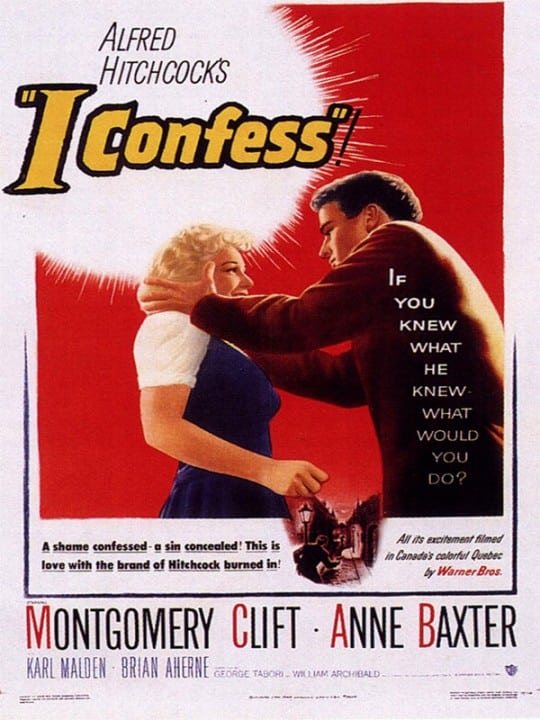
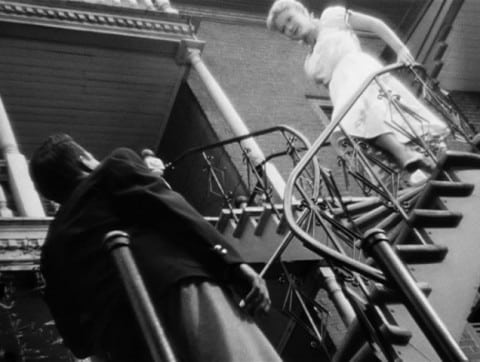
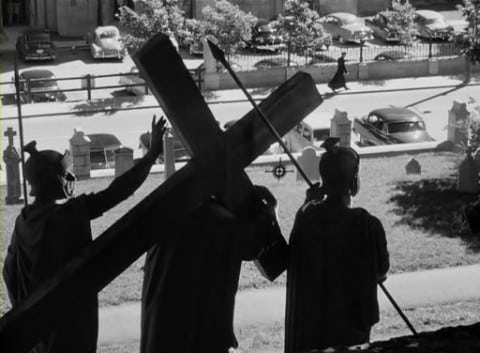



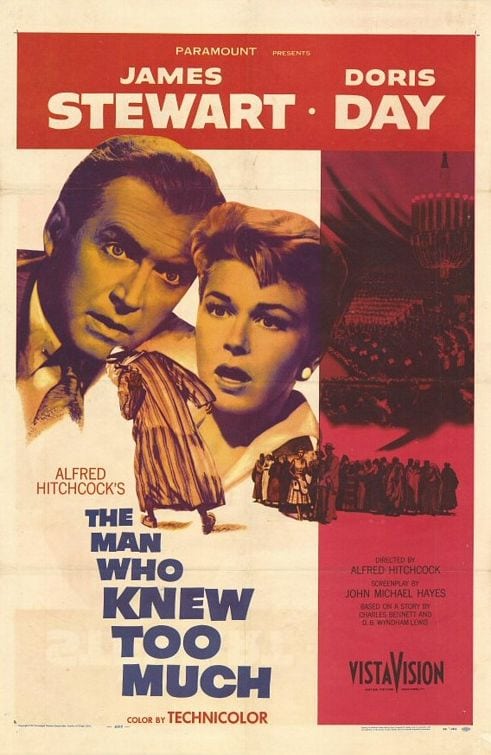
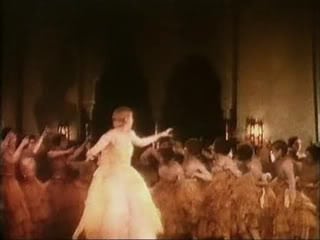
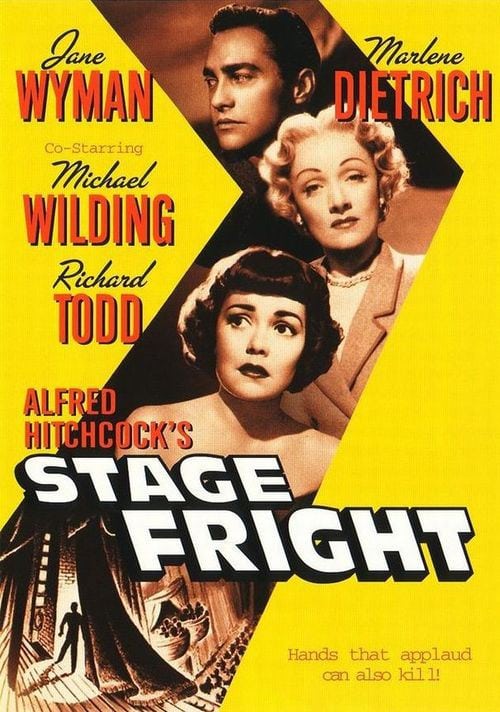
Be the first to comment